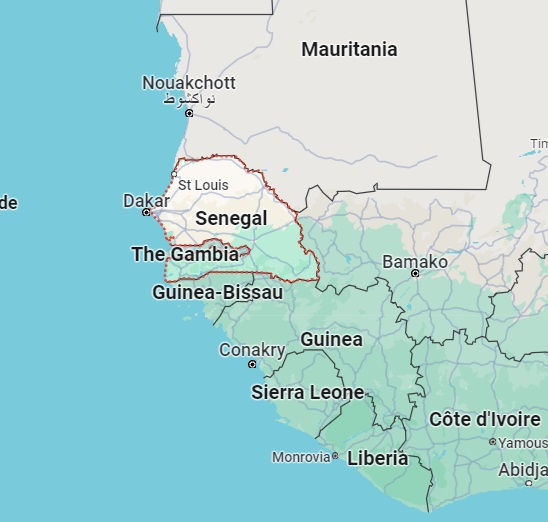IMMINENT WARNING: NINE PEOPLE DEAD AFTER CLASHES DURING DEMONSTRATIONS IN SENEGAL
- Senior Editor
- Jun 2, 2023
- 2 min read
Updated: Feb 17, 2024
Region of Concern: Senegal
Written By Iris Hautaniemi Forsberg; Edited by Cameron Munoz
Date: June 2, 2023

Map of Senegal in Africa[1]
Event: On June 1, clashes broke out between police and supporters of the opposition leader Ousmane Sonko in Senegal. Nine people died in the exchange after Sonko was convicted of corruption and sentenced to two years in prison. Sonko’s followers took to the streets shortly after the verdict in the capital, Dakar, and Ziguinchor, a city in the south where Sonko is mayor. Accounts on social media reportedly called on the protesters to use violence against the police, and the Senegalese authorities have closed down several social media platforms such as Facebook, WhatsApp, and Twitter.[2] Sonko finished third in the 2019 presidential elections and is very popular among the country's youth, but the conviction bars Sonko from participating in the 2024 election.[3] In March 2021, Sonko was arrested for disrupting public order, which led to demonstrations and clashes between police and protesters, resulting in several people dead.[4]
Significance: Protests by the opposition will very likely continue during the weekend, leading to unrest and more potential clashes between the police and the protestors. The deaths will likely lead to more hostile tensions from the protestors toward law enforcement, intensifying the violence from protesters. By shutting down social media platforms, the opposition will likely have a harder time organizing larger protests. However, the shutdown of social media will likely exacerbate the opposition’s anger by taking away the opportunity for youths to raise opinions online, instead resulting in increased motivation to protest. The conviction of Sonko will likely lead to continued protests frequently throughout the year because of the lack of opposition candidates in the 2024 election. By stopping a candidate that is popular among the youth, there is a roughly even chance that this will lead to violent uprisings in the future, with growing resentment of the government spreading among youths.
Recommendations: The Senegalese government should increase social media monitoring and cooperate with social media platforms to remove any posts endorsing violence. However, the government should also remove the general ban on social media platforms and respect people’s freedom of speech online. Peaceful protests should be allowed, and the government should encourage the demonstrations to go through the lawful path of seeking a demonstration permit. Law enforcement should deploy extra personnel to areas with large support for Sonko and monitor and arrest key people that incite violence against police or buildings. Police should not respond to the demonstrations with excessive violence since this risks fueling more resentment towards them. Human rights organizations operating in the country, such as Amnesty International and the National Organization for Human Rights in Senegal, should increase monitoring of the situation and report any human rights abuses and unproportionate violence from law enforcement.
[2] Clashes in Senegal leave at least 9 dead; government bans use of social media platforms, AP, June 2023, https://apnews.com/article/senegal-protests-opposition-leader-ousmane-sonko-convicted-d825d28800ee1c7036731d5ed7a572a8
[3] Ousmane Sonko trial: Senegal opposition leader sentenced for 'corrupting youth', BBC News, June 2023
[4] Senegal protests after opposition leader Ousmane Sonko arrested, BBC News, March 2021, https://www.bbc.com/news/world-africa-56298756